Water heater inspections can save you money and reduce headaches.
A water heater is an expensive investment, but one you use every day — whether for showering, washing dishes or cleaning clothes. Most households grind to a halt if the water heater breaks. The first sign that your water heater isn’t functioning properly is when the water doesn’t maintain its temperature properly.

Catch any issues early by scheduling an annual water heater inspection. When the professionals from Blue Planet Plumbing arrive to conduct the inspection, they’ll check the following things, which indicate the health of your water heater:
- The pressure relief valve. When the inspector flips the valve flap, a burst of water should release. If it doesn’t, it needs to be replaced.
- Exterior of the water heater. The inspector should do an all-over water heater inspection to make sure there’s no rust or corrosion occurring.
- Anode rods. If the rods are corroded, it can cause the tank to rust. Anode rods last an average of five years, so if you replace them every five years instead of waiting for them to fail, you can extend the life of your water heater.
- Sediment draining. This should be done at least once, if not twice, a year. The inspector should allow water to run from the water heater into a nearby floor drain or through a hose to the outside until it’s clear.
- The heating elements. Once the front panels are removed, the water heater inspection requires a heating element check. They can become rusty, in which case, they need to be replaced. If you have no hot water — that means the top element is broken. If you can only get warm water, then your lower element most likely needs to be replaced.
- The manufacturer’s plate. The plate has pertinent information, such as the age and capacity of your water heater. Since most water heaters last anywhere from eight to 15 years — depending on make, model, capacity and even location within your home — at some point in the water heater inspection, the current age of your water heater must be noted. This way, your inspector can let you know if it’s getting close to the time when you’ll have to replace it.
- Temperature. The inspector should also check the temperature, to make sure the water heater is set to between 120 and 125 degrees Fahrenheit. Not only will this save you money on your electric bill if you have an electric water heater, but it’ll reduce the chance of someone in your household being scalded. And this setting reduces wear and tear that high temperatures can inflict on the unit.
- Drain pan. A good inspector makes sure there is a drain pan under your unit before he leaves. The drain pan can save your floors in the event of a issue. If water shows up in the pan, it’s an indicator there’s a issue with your water heater.
A tankless water heater requires a slightly different check. For example, a tankless water heater inspection includes a filter check. The inspector also keeps the unit scale and lime-free.
As with many large appliances in the home, inspections mean catching issues early. So call Blue Planet Plumbing to perform regular inspections and maintenance. It can prolong the life of your water heater.
The Asheville plumbers from Blue Planet Plumbing offer knowledgeable advice so you can make an informed decision. They recommend the most up-to-date, cost-effective and environmentally conscious models available. Call Blue Planet Plumbing at 828-423-6289 for all your plumbing needs.











